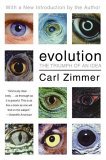 Dr. Bush gave a fascinating lecture today on stem cell research; how far we have come and how far we have left to go. The first mouse embryonic stem cells were cultured in 1981, and the first human embryonic stem cell was cultured in 1998. Just a decade later, scientists are able to transform these and other stem cells into any tissue in the body. A technique done regularly among researchers is somatic cell nuclear transfer. This is when the nucleus is removed from an unfertilized egg cell and replaced with the nucleus from a patients somatic cell (heart cell, liver cell, etc.). This ultimately puts the genetic material of the patient into cells that can become any part of their body. This is exciting because whenever tissue is transplanted into a human being there is always the risk of rejection, but this method minimizes that risk because the cell contains instructions for life, unique to the donor.
Dr. Bush gave a fascinating lecture today on stem cell research; how far we have come and how far we have left to go. The first mouse embryonic stem cells were cultured in 1981, and the first human embryonic stem cell was cultured in 1998. Just a decade later, scientists are able to transform these and other stem cells into any tissue in the body. A technique done regularly among researchers is somatic cell nuclear transfer. This is when the nucleus is removed from an unfertilized egg cell and replaced with the nucleus from a patients somatic cell (heart cell, liver cell, etc.). This ultimately puts the genetic material of the patient into cells that can become any part of their body. This is exciting because whenever tissue is transplanted into a human being there is always the risk of rejection, but this method minimizes that risk because the cell contains instructions for life, unique to the donor.
Some might ask how the undifferentiated stem cells become destine for specific tissue types. One way scientists are doing this is by treating stem cells with different “cocktails” of growth factors that will determine their final destination. One example Dr. Bush gave was the experiment where mouse cells were treated with two different growth factors which caused them to become cardiac muscle cells. He showed a brief video of these cells and they were actually beating! He said they are now even able to take cells that are already at there terminal state, like skin cells, and make them into stem cells. We saw an example of this in class when Dr. Katti showed us how they took skin cells, turned them into stem cells, which became red blood cells that were placed in a mouse with sickle cell anemia and ultimately cured the mouse of this disease.
It is truly amazing what these cells and this research is capable of. There are some set backs for those doing stem cell research. For example, the federal government will only provide funding for research done on 21 cell lines that have been approved. However, this does not stop private funding from taking place. Dr. Bush believes that we are about five to ten years away from seeing stem cells used in medicine. In July of this summer, Dr. Bush is going to have a workshop for university professors showing them how to culture stem cells so that, in the future, college courses can be designed to teach students these methods.
From the stand point of evolution, will stem cells and their potential in medicine ultimately have adverse effects on the human population? Futuristically speaking, if we eliminate disease are we eliminating natural selection on our species? Will this cause the human population to rapidly overshoot its carrying capacity because everyone is living healthy lives without terminal illnesses? Or on the other hand, will new diseases arise from strains of mutant stem cells? As much as it is exciting to find cures to Parkinson’s, liver disease, and sickle cell anemia; it is equally frightening to ponder the repercussions of this new wisdom.
Check out these websites for additional news regarding stem cells:
Somatic Cell Nuclear Transfer (Therapeutic Cloning)
California Institute for Regenerative Medicine
Chemical Turns Stem Cells Into Beating Heart Cells
[contributed by Sheena Edmonds]













1 comments:
Excellent points and I'm encouraged that discussion and open dialogue were stimulated--that's important for these issues.
From the standpoint of evolution, I want you to consider the concept of medical intervention. No other species does this. The stem cell issues aside, humanity has already affected the natural history of the human population. The questions that are posed are provocative but in asking those questions, one also needs to contemplate the role of medicine in our society and thus medical history. Is it wrong? The vast majority would say no. Are there consequences? The simple answer is yes...
...fortunately, at no other time in human history have we been so transparent with scientific progress and medical breakthroughs and had the information so readily available to the public. The real facts are out there and I am hopeful that scientists and ethicists can collaborate to drive biomedical policy rather than making it a political agenda.
Post a Comment